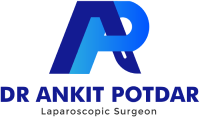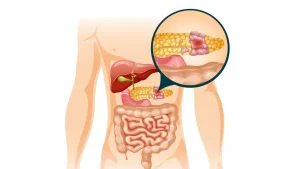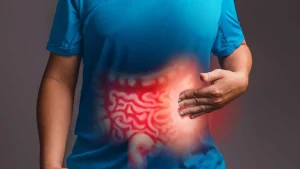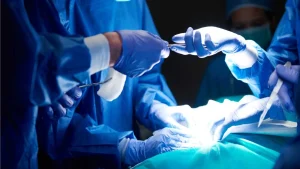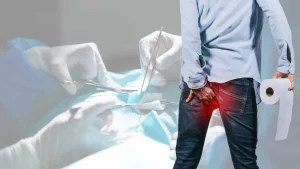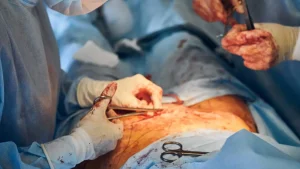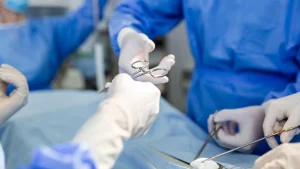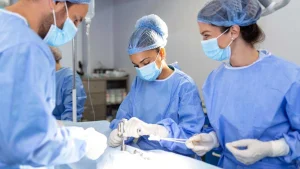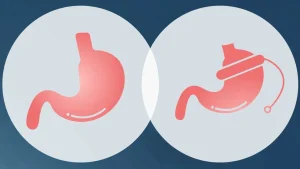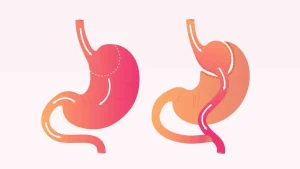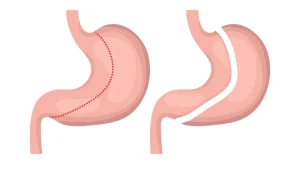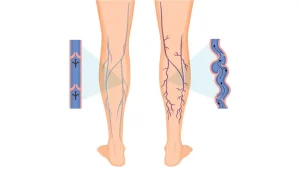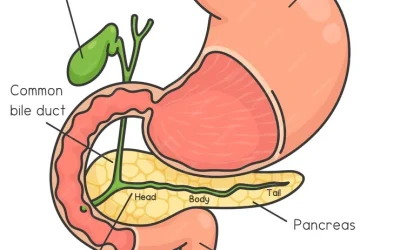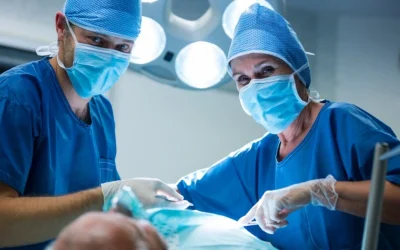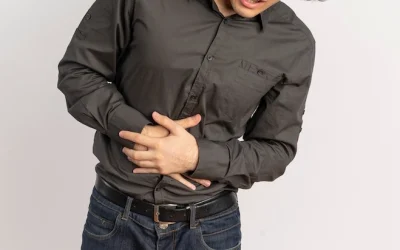Varicose Veins

Overview
Varicose veins are a common condition in which the veins in the legs become swollen, twisted, and enlarged, often causing discomfort or pain. While conservative measures such as lifestyle changes and compression stockings can be effective for some patients, others may require surgical intervention to alleviate their symptoms and prevent further complications.
At our practice, we offer state-of-the-art varicose vein surgery options that are minimally invasive and highly effective, allowing patients to get back on their feet and resume their daily activities quickly.
We will explore the symptoms and causes of varicose veins, the diagnosis process, and the various treatment options available, with a particular focus on varicose vein surgery. Whether you’re experiencing mild discomfort or severe pain, we’re here to help you find the right treatment plan for your needs.
Everything You Need To Know Varicose Veins
What is Varicose Veins
Varicose veins are enlarged, twisted and swollen veins that occur mainly in the lower legs and feet. They are caused by weakened valves and vessels in the veins which prevent blood from flowing correctly and instead allow it to back up and pool.
As a result, pressure builds up in the vein walls causing them to become swollen and distorted. Varicose veins can be both unsightly and uncomfortable, as they can cause cramping, aching, or throbbing pain. If left untreated, they can lead to more serious complications such as leg ulcers or thrombosis.
Symptoms and Causes of Varicose Veins
Varicose veins are generally easy to identify due to their distinctive appearance on the skin. They appear as swollen, twisted veins that may be red or purple in color. Other symptoms of varicose veins can include aching, burning, cramping or throbbing pain in the legs; swelling of the ankles or feet; tenderness in the affected area; itching around the vein; and/or a feeling of heaviness in the affected leg.
The causes of varicose veins involve weakened valves within the veins which allow blood to back up and pool instead of being circulated correctly. This causes an increase in pressure which leads to swelling and distortion of the vein walls.
Factors that increase your risk for developing varicose veins include age (more common with increasing age), gender (women are more likely to have them), family history, pregnancy, obesity, lack of movement, trauma or injury in the affected area, smoking, excessive standing/sitting, birth control pills and hormonal changes.
Diagnosis of Varicose Veins
Diagnosis of varicose veins typically begins with a physical examination by a medical professional. During this examination, the doctor will inspect the affected area and look for signs of swelling or discoloration in the veins. They may also ask about your family history or any other risk factors that could cause or contribute to varicose veins.
In some cases, additional diagnostic tests such as ultrasound may be used to confirm the diagnosis. Ultrasounds are able to provide images which can help determine the severity of the varicose veins and any underlying conditions that may be contributing to them.
Treatment Options for Varicose Veins
The primary treatment options for varicose veins include conservative measures such as lifestyle changes and compression stockings, medical interventions, and surgical procedures.
Lifestyle changes such as getting regular exercise, maintaining a healthy weight, avoiding long periods of standing or sitting, and wearing compression stockings can help reduce the symptoms and appearance of varicose veins.
Medical interventions such as sclerotherapy involve injecting a solution directly into the vein to close it off. Other treatments such as laser therapy are designed to target the underlying cause of the vein condition while still leaving the vein intact.
For more severe cases, surgical procedures may be required to remove the affected veins from the body. This may involve stripping the affected vein entirely or using endovenous ablation techniques which use heat energy to seal off damaged veins. Endovenous laser therapy, radiofrequency ablation, and ambulatory phlebectomy are other surgical options that can be used to treat varicose veins.
Varicose Vein Surgery
Varicose vein surgery is a surgical procedure that is used to remove the affected veins from the body. The procedure typically involves making an incision near the affected area and using a catheter to remove the varicose vein.
Potential risks and complications associated with varicose vein surgery include infection, bleeding, nerve damage, blood clots, and chronic swelling. In addition, there may be some pain after the procedure which can often be managed with pain medications.
The expected outcome of varicose vein surgery is usually improved function and decrease in symptoms of discomfort or weakness. In many cases, patients experience considerable relief from symptoms and significant cosmetic improvement in the appearance of their legs.
Preparation and Recovery for Varicose Vein Surgery
Before undergoing varicose vein surgery, it is important to discuss the procedure with your doctor and prepare accordingly. This may include following a healthy lifestyle by maintaining a healthy weight, exercising regularly, and avoiding long periods of sitting or standing. It is also important to follow any instructions given by your doctor in terms of pre-operative medications or tests.
The recovery process typically involves wearing compression stockings for a few weeks after the procedure to help reduce swelling. You will likely be asked to avoid strenuous activity during this time as well. Your doctor may also recommend physical therapy sessions to help support the healing process.
Overall, most patients experience good results with minimal complications after varicose vein surgery. However, it is important to follow your doctor’s instructions carefully during both the preparation and recovery stages in order to get the best possible outcome from the procedure.
Frequently Asked Questions about Varicose Vein
-
What are the Benefits of Varicose Vein Surgery?
The benefits of varicose vein surgery include improved functioning of affected veins, reduction in symptoms such as swelling and discomfort, and cosmetic improvement in the appearance of legs.
-
How Long Does The Surgery Take?
Varicose vein surgery typically takes between 30 minutes to an hour, depending on the amount and location of varicose veins.
-
Is The Surgery Painful?
The procedure itself is generally not painful, although there may be some discomfort associated with the incision. After the procedure, you may experience some pain that can usually be managed with medication.
-
What Are The Potential Risks And Complications Of Varicose Vein Surgery?
Potential risks and complications associated with varicose vein surgery include infection, bleeding, nerve damage, blood clots, and chronic swelling. Therefore it is important to discuss all potential risks with your doctor before undergoing any procedure.
-
How Long Does It Take To Recover From Varicose Vein Surgery?
Most patients will experience noticeable improvements in their symptoms within a few days after the procedure. Recovery typically involves wearing compression stockings for a few weeks following the procedure to help reduce swelling. Your doctor will provide specific instructions regarding recovery time and restrictions on physical activity during this time.
-
Will I Need To Take Time Off Work After The Surgery?
This will depend on your individual circumstances and type of job, however most patients can resume light activities within a week or two after the procedure. It is important to follow your doctor’s instructions carefully when returning to work or resuming normal daily activities.
-
Are There Any Restrictions On Physical Activity After The Surgery?
Yes, it is important to avoid strenuous activities for several weeks following varicose vein surgery in order to promote healing and prevent further complications from occurring. Your doctor may also recommend physical therapy sessions during this time as well.
-
Will I Need To Wear Compression Stockings After The Surgery?
Yes, most patients will need to wear compression stockings for several weeks following varicose vein surgery in order to help reduce swelling and support healing processes. Your doctor will provide specific instructions regarding how long you should wear them for.
-
How Long Will I Need To Wear The Compression Stockings?
The length of time you will need to wear compression stockings will vary depending on your individual circumstances; however most patients do not need more than a few weeks of compression stocking use after their procedures have been completed.
-
How Successful Is Varicose Vein Surgery?
Varicose vein is usually very successful at improving function and decreasing symptoms associated with affected veins; however each patient’s outcome may vary depending on their individual circumstances .
-
How Soon Can I Expect To See Improvements In My Symptoms After The Surgery?
Most people experience considerable relief from their symptoms within a few days or weeks after having varicose vein treatment done; however each person’s response may differ according to their individual situation .
-
Can Varicose Veins Come Back After Surgery?
Although rare , there is always a possibility that varicosities could recur due to potential contributing factors such as genetics , lifestyle choices , or trauma . Your doctor can provide advice on how best to counter maximize chances of recurrence.
-
What Can I Do To Prevent Varicose Veins From Recurring?
In some cases , certain lifestyle changes such as maintaining a healthy weight, exercising regularly, avoiding long periods of sitting or standing , wearing supportive clothing and stockings , eating a balanced diet ,and avoiding high heels can help decrease the risk of recurrent varices . Additionally-consuming natural flavonoid-rich foods such as citrus fruits may also provide protection against future occurrences.
Why Choose Dr Ankit Potdar for Varicose Veins?
Dr Ankit Potdar is an experienced vascular surgeon who specializes in the diagnosis and treatment of venous diseases. He has extensive experience in treating patients with varicose veins and takes a personalized approach to care, taking into account each patient’s specific needs and goals for their treatment plan.
Dr Potdar utilizes minimally invasive techniques whenever possible, helping to reduce pain and recovery times for his patients. He is highly dedicated to providing the best possible care and achieving excellent results for all of his patients. As such, Dr Potdar is an excellent choice for anyone looking for a trusted and experienced vascular specialist for varicose vein treatment.
For more information related to the various treatments available for varicose veins, please contact us today. We look forward to helping you achieve your desired results.
Thank you!
We hope this answers all of your questions about varicose vein surgery and helps in your decision-making process. If you have any further questions or concerns, do not hesitate to reach out and contact us. Our team of specialists is here to help you understand your options and make the best decision for your individual needs.
Our Services
Pancreatic Cancer
Pancreatic cancer is a type of cancer that affects the pancreas – an organ located in the abdomen
Colon Cancer / Colorectal Cancer Surgery
Colon cancer is a serious and potentially life-threatening disease.
Hernia Laparoscopic Surgery
A hernia is the protrusion of an organ or tissue through a weak or damaged area in the abdominal wall
Piles Surgery
Piles, also known as hemorrhoids, are swollen veins in the anal and rectal area.
Appendix Surgery
Pain or discomfort in your abdomen, it is possible that you may have appendicitis.
Fistula Surgery
A fistula is an abnormal connection between two organs or tissues that can lead to complications.
Gallstone Surgery
Gallstone Surgery is a minimally invasive procedure to remove gallstones.
Gastric Band Surgery
Gastric Band Surgery is a safe, non-invasive bariatric procedure that helps you lose weight quickly and safely
Gastric Bypass Surgery
Gastric Bypass Surgery is a minimally invasive procedure that can help you to achieve your weight loss dreams.
Gastric Sleeve Surgery
Gastric sleeve surgery, an effective and popular procedure for achieving significant weight loss.
Varicose Veins
Varicose veins are enlarged, twisted and swollen veins that occur mainly in the lower legs and feet.
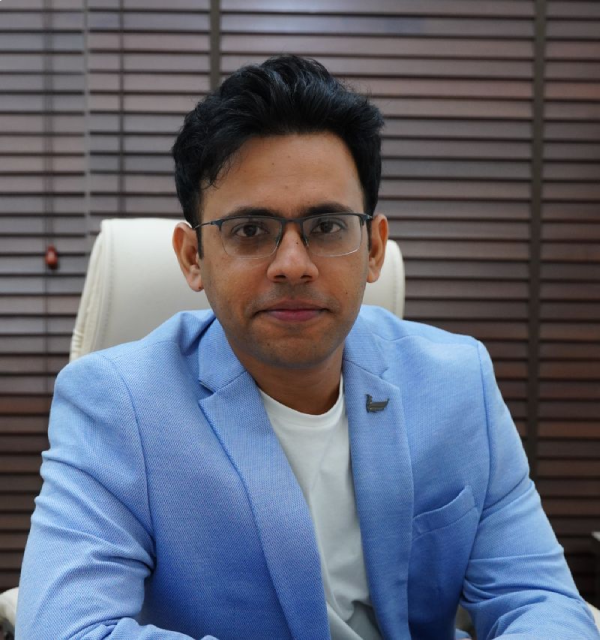
PROFILE
About Dr. Ankit Potdar
Dr. Ankit Potdar is one of the best laparoscopic surgeon in Mumbai, India. He has extensive knowledge and training in advanced laparoscopic and robotic surgery, and is known for his precision, expertise, and compassionate approach to patient care.
He is an expert in general, oncological, advanced laparoscopic GI surgery, Thoracic and Esophageal surgery. He is currently associated with SRV Hospital, Goregaon West and Chembur Mumbai.
He has extensive experience in performing minimally invasive surgeries for various conditions, including gastrointestinal diseases, obesity, hernias, and gallbladder problems.
Patient Treated By Dr. Ankit Potdar
People heavily rely on reviews from other patients when choosing a healthcare provider
Dr. Ankit has done my Brother Harnia Surgery. It went well and my brother recovered so fast. Really good Dr. .Explained every precautions and give full assistance in the follow-up as well.. Thank you Dr. Ankit
Best doctor i ever met. Friendly type nature, my umbilical hernia surgery was done by dr ankit poddar and always recving my calls reply by late nights also ...
Dr Ankit Potdar is a gem of a person. I have been operated for ovarian cancer under his care and we are very satisfied with the treatment received. Doctor is very honest and straightforward and also helped us with the treatment protocol post surgery.
Patient Knowledge Center -Blogs
Blogs
Symptoms of Gallbladder Stones ?
Dr. Ankit Potdar, a renowned gallbladder surgeon in Chembur, specializes in treating gallbladder stones. Learn about symptoms and treatme...
Advantages of Laparoscopic Surgery for Hernia Repair
Transforming Hernia Repair: Meet Dr. Ankit Potdar, Mumbai’s Laparoscopy Expert! Uncover the Benefits of Minimally Invasive Surgery ...
Effective Methods for Gallbladder Stone Relief
Gallbladder stones, also known as gallstones, are a common medical condition affecting millions worldwide. These hardened deposits can ca...
